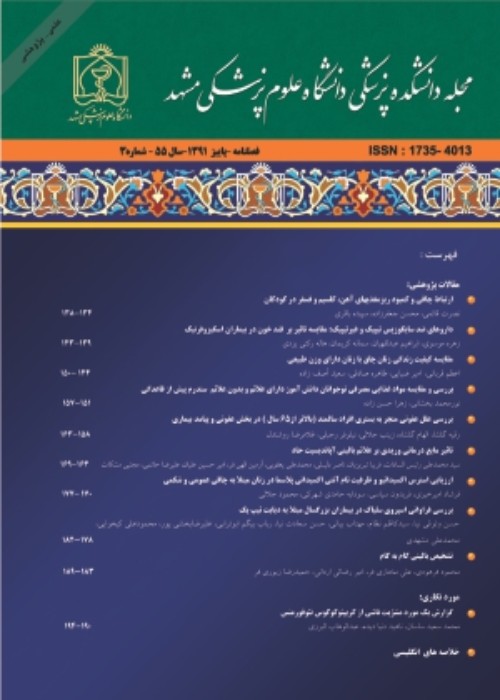Comparison the Effect of Transcranial Direct Current Stimulation and Cognitive-Behavioral Therapy on Obsessive Compulsive Symptom, Obsessive Beliefs and Guilty Feeling in Obsessive-Compulsive Disorder
the purpose of this study was to compare the effect of transcranial direct current stimulation and cognitive-behavioral therapy on obsessive compulsive symptom, obsessive-compulsive beliefs and guilty feelings in people with obsessive-compulsive disorder in Tehran.
The research method is quasi-experimental research (pre-test-post-test design with control group). The statistical population included all patients with obsessive-compulsive disorder referred to psychiatric centers and psychological services and counseling in Tehran. The sample size was 30 people who were divided into three groups (two experimental groups and one control group). The first experimental group received transcranial direct current stimulation for 24 sessions of 20 minutes. In the second experimental group, cognitive-behavioral therapy was performed for 10 sessions of 90 minutes and the control group did not receive any intervention. Research data were collected using the Yale Brown Obsessive Compulsive Scale (1986), Obsessive-Verity Questionnaire (2011), and guilty feelings of Kauger and Jones (1998). For data analysis, univariate analysis of covariance (ANCO) and multivariate analysis of covariance (MANCOVA) were used by SPSS-v.21.
the results showed that both brain electrical stimulation treatments from the skull and cognitive-behavioral therapy separately reduced obsessive-compulsive beliefs and guilty feelings in people with obsessive-compulsive disorder (P< 0.05).
among the two treatments, the treatment of transcranial direct current stimulation was more effective than cognitive-behavioral therapy in reducing the obsessive compulsive symptom and guilty feelings, but it was more effective in reducing the cognitive-behavioral beliefs of obsessive beliefs; these results were also observed after one-month follow-up period.
- حق عضویت دریافتی صرف حمایت از نشریات عضو و نگهداری، تکمیل و توسعه مگیران میشود.
- پرداخت حق اشتراک و دانلود مقالات اجازه بازنشر آن در سایر رسانههای چاپی و دیجیتال را به کاربر نمیدهد.


